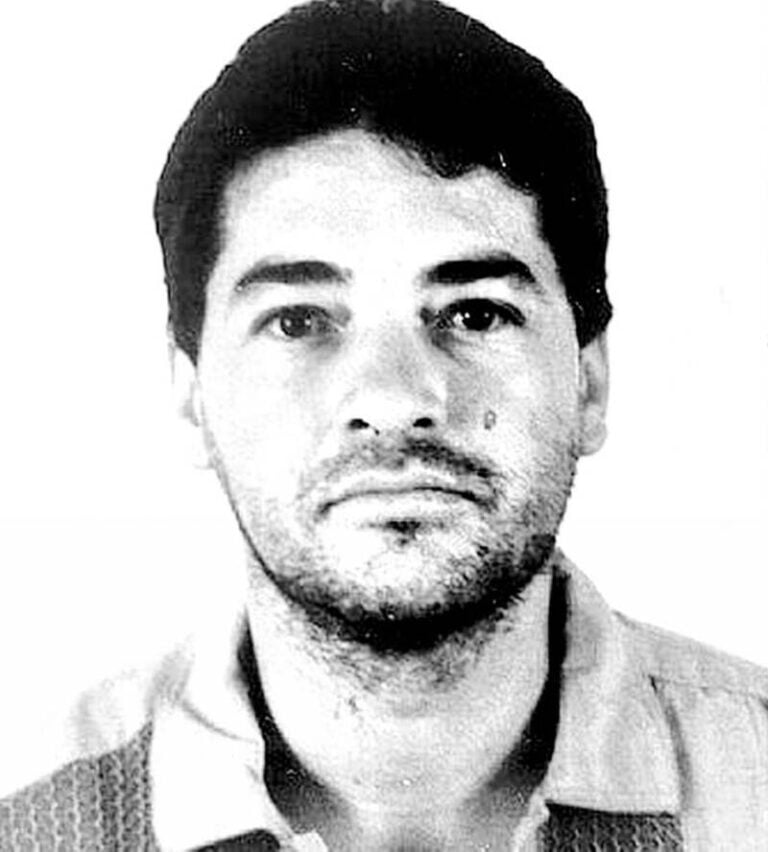Pacho Herrera: The Cali Cartel's Gay Leader & Narcos Secrets
In the murky world of the Cali Cartel, where violence and power were currency, could a man's private life coexist with his ruthless ambition? The case of Helmer "Pacho" Herrera proves that in the heart of the cocaine trade, even the most unexpected facets of a kingpin's life could be tolerated, and even leveraged for strategic advantage.
The Cali Cartel, a criminal organization that once controlled the vast majority of the world's cocaine market, was known for its ruthless efficiency and intricate network of operations. Yet, within this environment of calculated brutality, a figure emerged who defied expectations: Helmer "Pacho" Herrera. Born in Palmira, Colombia, on August 24, 1951, Herrera rose to become one of the four key leaders of the cartel, alongside the Rodrguez Orejuela brothers and Jos Santacruz Londoo. What set him apart was not just his strategic mind and business acumen, but also his openness about his homosexuality, a fact that was common knowledge, even in the close-knit world of the cartel.
| Category | Details |
|---|---|
| Full Name | Helmer Francisco Herrera Buitrago |
| Alias | Pacho Herrera, H7 |
| Date of Birth | August 24, 1951 |
| Place of Birth | Palmira, Colombia |
| Death | November 6, 1998 |
| Role in Cali Cartel | One of the four leaders, responsible for New York operations |
| Key Activities | Cocaine trafficking, distribution, negotiation with other cartels, expansion into the United States |
| Personal Life | Openly gay, maintained a separation between professional and personal life |
| Known for | Strategic thinking, independent leadership, control of US operations |
| Interesting Fact | Herrera's homosexuality was known within the cartel, but it did not affect his position or standing. |
| Reference | Wikipedia: Helmer Herrera |
Herrera's story is a study in contrasts. Within the cartel, his personal life, although unconventional for the time and environment, was largely accepted. As sources suggest, the men "giggled among themselves about his uniqueness, and it all ended there." This tolerance, or perhaps indifference, is a significant detail. It showcases how Herrera was valued for his professional capabilities rather than judged by his personal life. This approach speaks to the cartel's priorities: efficiency, control, and the pursuit of profit above all else. Herrera kept his professional and personal lives separate, ensuring that his personal life didn't interfere with his crucial role in the organization. He was considered invaluable to the group.
The Cali Cartel, after the decline of Pablo Escobar, rose to unprecedented power, controlling an estimated 90% of the world's cocaine market. Sensing an opportunity, they began aggressively targeting American cities. It was here that Herrera's role became particularly critical. Within weeks, the cartel sent him to New York City to establish a formal distribution center. This move highlights Herrera's strategic importance to the cartel, as he was tasked with managing numerous "cells" and overseeing the expansion of the cocaine market in the United States. His ability to navigate the complexities of the American drug market, alongside his known capacity for leading independently, made him indispensable.
Herrera's strategic prowess extended beyond the United States. He was trusted with negotiations with other drug cartels, such as the Medelln Cartel, a clear indication of the cartel's confidence in his leadership and diplomatic skills. This independence and autonomy allowed him to flourish within the cartel's hierarchy, and cemented his influence in the global drug trade.
The Cali Cartel's reach extended into Europe, where they were directly responsible for the growth of the cocaine market. This expansion, driven by the likes of Herrera, solidified their position as the dominant force in the international drug trade. During the cartel's reign, they controlled 80% of the world's cocaine market, showcasing the extensive scale of their operations and the impact of leaders like Herrera.
- Frank Abagnales Net Worth From Con Artist To Consultant
- Jalal Abuimweis From Homeless To King Of Miami Real Estate
Despite his prominence, Herrera's career was marked by the inherent risks of his profession. The Cali Cartel faced increasing scrutiny from law enforcement. Sensing the pressure, Herrera surrendered to the police on September 1, 1996, during a crackdown on the cartel. Ultimately, Herrera met his end while incarcerated, killed by a gunman during a soccer game in a prison yard outside Cali in 1998. This incident, just a short time after his surrender, highlights the precarious nature of life in the drug world, even when attempting to escape its clutches.
The story of Helmer "Pacho" Herrera is a unique one. It is a reminder that even in the most cutthroat environments, there can be unexpected facets to the human experience. The Cali Cartel's tolerance of his sexuality, while perhaps driven by practicality, speaks volumes about the ruthless efficiency that defined their operations. Herreras ability to maintain a separation between his personal and professional life was a key factor in his success. His life, both in and out of the cartel, offers a complex glimpse into the world of the Cali Cartel and the complex dynamics of power, loyalty, and survival within a criminal organization.
Herrera's story also illuminates the broader history of drug cartels in Colombia. The Cali Cartel's rise to power after the fall of Pablo Escobar marked a shift in the dynamics of the drug trade. The cartel, with its sophisticated organizational structure and focus on international distribution, played a pivotal role in shaping the global cocaine market. Herrera's involvement in the establishment of a distribution center in New York, his strategic negotiations, and his management of the cartels U.S. operations, reflects the Cartel's focus on expansion and consolidation of power.
The Cali Cartel's ability to adapt and evolve allowed them to dominate the cocaine market for a significant period. Their focus on expanding into new markets, particularly in the United States and Europe, was a key factor in their success. The cartels history is not only defined by the violence and corruption associated with the drug trade but also by the strategic decisions of individuals like Herrera who helped to shape the cartel's trajectory.
The cartel's activities also had a devastating impact on Colombia, contributing to widespread violence, corruption, and instability. The war against the Norte del Valle Cartel, another major drug trafficking organization, shows the intense rivalries that marked the drug trade. The cartels history, including the eventual arrest of key leaders, highlights the cyclical nature of the drug trade and the challenges of combating organized crime.
The case of Helmer "Pacho" Herrera provides a multifaceted portrait of a man operating within a ruthless organization, and a revealing look into the complex world of the Cali Cartel, where the lines between personal and professional, acceptance and pragmatism, blurred into a complicated mosaic of power and survival.
- Taya Kyles Net Worth Chris Kyles Legacy 2024 Updates
- Big Poppa Kim Zolciak The Rhoa Drama You Need To Know

Pacho Herrera, The Flashy And Fearless Drug Lord Of 'Narcos' Fame

Cali Cartel leader, Hélmer "Pacho" Herrera speaking to the press after

Pacho Herrera, the last capo from the Cali Cartel, voluntarily